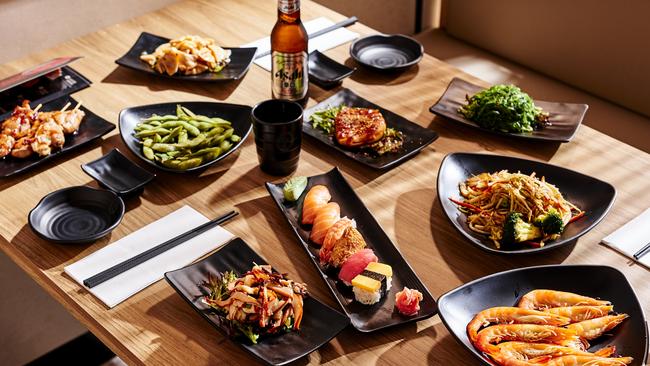Australia hospitality, retail industries fail at record rate in 2024 as energy, spending hurts
Aussie hospitality firms and retailers are collapsing at the fastest pace on record as soaring prices and dwindling household budgets cripple business owners.
Business
Don't miss out on the headlines from Business. Followed categories will be added to My News.
Hospitality businesses failed at the fastest rate on record in the 2024 financial year as soaring food and energy prices and a pullback in consumer spending pushed cafes and restaurants to the wall.
Cafes, restaurants and small retailers registered disproportionate growth in insolvency appointments in the past year, while consumers have been forced to pay more for essential items and pulled back from discretionary purchases.
New data from the Australian Securities & Investments Commission shows accommodation and food services insolvency appointments rose faster than any other sector in the 12 months to June 30. The number of collapses skyrocketed by 50 per cent to a record 1667, compared to its previous high of 1114 in 2023.
Retail trade appointments surged by 42.2 per cent to 768.
This compared to a 39.1 per cent jump in total insolvency appointments over the period to 11,049 – another record.
Restaurant and Catering Australia chief executive Suresh Manickam said many of his members were being squeezed from all sides during one of the toughest periods the sector has faced.
As restaurant and cafe owners struggle to cope with increased operating costs, they have also been affected by weaker demand as households look to cut back on eating out. “Higher interest rates, cost of living pressures on the up, more expensive produce and the cost of energy are all having an impact,” he said.
“Compared to this time last year, people have less money in their pockets and a reduced ability to pay and go out, and there lies the problem the sector is facing.”
Mr Manickam told The Australian the government needed to invest in apprentices and trainees to ensure the industry had access to qualified staff, along with providing subsidies for energy to safeguard the future of the hospitality sector.
Recent data from the Australian Bureau of Statistics showed monthly household spending in hotels, cafes and restaurants has declined 13 per cent since the end of 2023, slightly outpacing the broader fall in spending.
Australian Restructuring Insolvency and Turnaround Association chief executive John Winter said a sharp increase in insolvencies for accommodation, retail and hospitality operators was inevitable following the RBA’s decision to lift the cash rate from 0.1 per cent to 4.35 per cent between May 2022 and December 2023.
“This discretionary spending is what the RBA has been targeting to take heat out of the economy and cut down inflation. That’s exactly what they’ve been trying to do,” he said.
“So that’s what you would expect. That’s where you’re going to see businesses being pushed out of the market, because of the cost of money.”
The past financial year has claimed big scalps including Good Group Australia, which operated high-end steak restaurant Botswana Butchery and several other Asian venues across Sydney, Melbourne and Canberra. It ceased trading in May after sacking 200 staff, with $23m in debt.
Japanese restaurant chain Okami in February placed more than a dozen outlets into voluntary administration nationally, blaming inflation and pandemic costs. In Brisbane, iconic French fine dining restaurant Montrachet entered voluntary administration along with BCN, the operator of King St Bakery in Bowen Hills and Newstead cafe and patisserie Mica.
Retailers caught in the crossfire include online bookseller Booktopia, while Godfreys Group closed for good in May after almost 100 years of selling vacuum cleaners. Local designer label Dion Lee entered voluntary administration amid poor retail sales, months after Taylor Swift was seen wearing the label at the Super Bowl.

Australian Retailers Association chief executive Paul Zahra said small retailers were in need of support more than ever before.
“Small retailers are currently facing immense pressures – from increased costs of doing business, to the consumer spending slowdown due to cost of living pressures,” he said.
“With the winter period often being one of the slowest periods in national retail trade, initiatives like the American Express Shop Small program help make a difference by encouraging new and existing customers through the doors of our retailers.” The ARA has teamed up with American Express to entice more shoppers to spend money at struggling retailers with the launch of the financial service providers’ Shop Small campaign starting August 1, offering consumers extra points per dollar and cash prizes for small businesses.
Mr Winter said hospitality and retail operators had also been targeted by the Australian Taxation Office, which has resumed a crackdown on unpaid debt after a ceasefire during the pandemic.
“When the ATO takes action it is being enforced on you as an individual, not against the company, and that actually drives people to make the decision to actually put their own business into an insolvency process,” he said.
More Coverage
Originally published as Australia hospitality, retail industries fail at record rate in 2024 as energy, spending hurts





